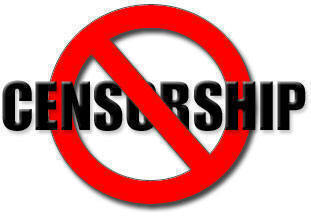A recent example is the teenage party film 21 and Over, the story of two white guys who take Jeff Chang out to get drunk on his 21st birthday, and then spend most of the film chasing after drunk Jeff Chang (who is always called Jeff Chang for some reason), who has an important medical school interview the next day. The version released in China features all-new bookends that emphasize Jeff Chang is better off attending medical school in China than going to the US and partying down with his friends. The scenes were even written by 21 and Over’s writers, Jon Lucas and Scott Moore, though they acknowledge they don’t have control over what lines are eventually dubbed into Chinese.
A more famous example is Iron Man 3, which was long-rumored to feature scenes involving Fan Bingbing and Wang Xueqi. The eventual US version got Wang Xueqi for a few seconds and that’s it, while in China, Wang Xueqi has a phone conversation with J.A.R.V.I.S. in Chinese and then takes a long pour of product placement milk. He and Fan Bingbing then feature in the very end with some extra scenes where they perform heart surgery on Tony Stark toss out some lines. That’s pretty much everything that happens, and Chinese audiences were none too happy at how dumb this all was.
The Chinese version of Looper also featured additional scenes set in Shanghai, which were facilitated by distributor DMG. Originally scenes were to take place in Paris (and then New Orleans doubling as Paris) until DMG proposed the switch to Shanghai and offered to pay for the shoot. This helped Looper get increased reach in China and $20 million in box office revenue there.
These longer scenes are an annoyance for people like me, who love to see everything involved in productions. Deleted scenes are my favorite feature of DVDs, and it’s especially interesting when films radically change their entire construction while added and removing scenes. I’m also a big fan of tracking down alternate cuts of films released in different territories, including films so altered they go by different titles.
Censorship in China is handled by the State Administration of Radio Film and Television (SARFT), which has a list of guidelines films and television must follow.
Cuts were made to Django Unchained for its Chinese release, only to find the film yanked soon after opening for “technical problems”. Those technical problems were unhappy censors who wanted to trim more. Eventually after some negotiations, Django Unchained was finally released, though by then many people had seen the original version due to the magic of piracy.
Cloud Atlas is also another casualty, with 40 minutes of running time removed. Cloud Atlas did bad enough at the box office for studios to not even try to fight this. Scenes cut included those which the censors believe weakened the theme or confused the plot. Skyfall also got some scenes chopped out, but the promise off the massive money was enough to forestall any argument with SARFT. Sony edited the Total Recall remake to become vague about areas that used to directly reference China.
A famous edit that became one of several reasons the Red Dawn remake was delayed was the hurried change of the movies invading villains from Chinese to North Korean. Sure, that made the film even more ridiculous, but with China as the villain, Red Dawn would not be getting a Chinese release and that tax write-off would need to get very written off, if you catch my drift. In addition, a major film with China as a villain would poison future film ventures with China. This leads into a danger zone, where possible future films that have political edges will be dulled by attempts to not anger China in return for more box office money.
As mentioned earlier, this editing for specific countries is not a new event. In fact, an upcoming book asserts that Hollywood actively edited its films to keep them in compliance with German censorship standards after the Nazis gained power. At that point, the German box office was a huge market, much like how China is today. The fact wasn’t a secret, though it’s hardly a fact people bring up. Ben Urwand asserts that the cooperation was far more extensive than previously known, to the point where he calls is collaboration.
On page after page, he shows studio bosses, many of them Jewish immigrants, cutting films scene by scene to suit Nazi officials; producing material that could be seamlessly repurposed in Nazi propaganda films; and, according to one document, helping to finance the manufacture of German armaments.
Urwand has a ton of details and examples of cuts to films, deletions of Jewish characters, German officials invited to give recommendations for edits and alterations, and even:
a January 1938 letter from the German branch of 20th-Century Fox asking whether Hitler would share his opinions on American movies, and signed “Heil Hitler!”
Now, we are not comparing China with Nazi Germany, but are just using it as an interesting example of history repeating itself.
The teamwork with China will not be ending anytime soon. Transformers 4 is featuring roles that are being decided by a Chinese reality show. James Cameron is talking about adding Chinese Na’vi to his Avatar sequels (both as motion-capture actors and as humans in the human settlement)…but only if it makes fiscal sense. You know, for story integrity.




